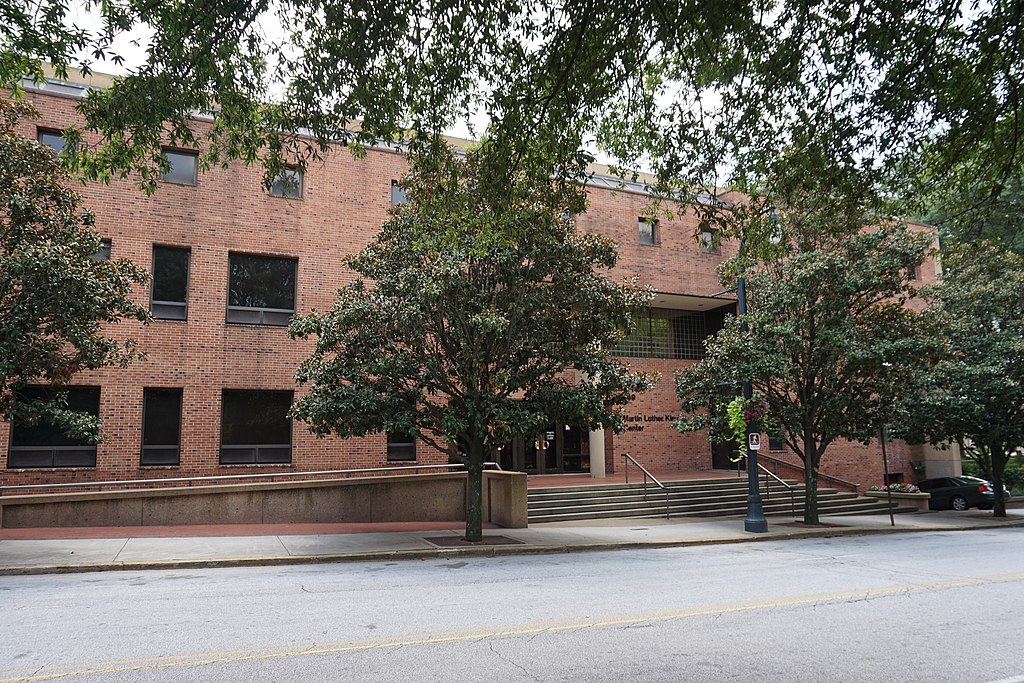
The King Center: Honoring the Legacy of Dr. Martin Luther King Jr.
The King Center, located in Atlanta, Georgia, stands as a powerful testament to the enduring legacy of Dr. Martin Luther King Jr., one of the most influential civil rights leaders in history. Established by Dr. King’s widow, Coretta Scott King, the center serves as a living memorial that not only preserves the memory of Dr. King but also continues his work to promote equality, justice, and nonviolence. Through education, activism, and community engagement, the King Center inspires individuals to uphold the principles of peace, equality, and social change. Learn More
Preserving Dr. King’s Legacy:
At the heart of the King Center is the preservation of Dr. King’s powerful and inspiring legacy. The center houses a collection of his personal papers, documents, and artifacts, providing visitors with a glimpse into his life and work. Exhibits highlight key moments of the civil rights movement, including the Montgomery Bus Boycott, the March on Washington, and the Selma to Montgomery marches. By immersing visitors in the struggles and triumphs of the movement, the center keeps Dr. King’s message alive and relevant.
The Eternal Flame and Tomb:
A poignant feature of the King Center is the Eternal Flame, a symbolic tribute to Dr. King’s vision and sacrifice. Visitors can pay their respects at the tomb of Dr. King and his wife, Coretta Scott King, a serene space that invites reflection and reverence. The site serves as a pilgrimage destination for individuals seeking inspiration and solace, reminding us of the profound impact Dr. King had on the world and the ongoing quest for equality.
Educating for Social Change:
Education is a cornerstone of the King Center’s mission. The center offers a variety of educational programs, workshops, and seminars designed to inspire individuals to become active participants in social change. Through discussions, lectures, and interactive exhibits, visitors gain a deeper understanding of Dr. King’s teachings on nonviolence, justice, and equality. The center’s commitment to education extends beyond its physical location, with online resources and outreach initiatives that reach a global audience.
Nonviolent Conflict Resolution and Training:
Central to Dr. King’s philosophy was the belief in nonviolent resistance as a means for social change. The King Center carries forward this important aspect of his teachings by providing training in nonviolent conflict resolution. Workshops and seminars equip individuals, organizations, and communities with the tools and strategies to address conflicts and promote understanding in a peaceful manner. By promoting nonviolence as a powerful force for change, the center empowers individuals to be agents of transformation in their own communities.
Community Engagement and Activism:
The King Center actively engages with the local community and beyond, serving as a catalyst for dialogue, activism, and community empowerment. It hosts a variety of events, including panel discussions, lectures, and artistic performances that explore social justice issues and encourage civic engagement. The center also collaborates with community organizations and partners to address contemporary challenges, such as voter registration, criminal justice reform, and economic equality. Through these efforts, the King Center creates spaces for dialogue, fosters unity, and inspires collective action.
Conclusion:
The King Center stands as a living memorial to the visionary leadership and enduring legacy of Dr. Martin Luther King Jr. Its commitment to education, nonviolence, and community engagement ensures that Dr. King’s teachings continue to shape hearts and minds. By preserving his memory, promoting equality, and inspiring individuals to be catalysts for social change, the King Center invites us to reflect on the progress made, acknowledge the challenges that persist, and work towards a more just and equitable society. It serves as a beacon of hope, reminding us that each individual has the power to make a difference in the pursuit of Dr. King’s dream of a beloved community. Next Article
